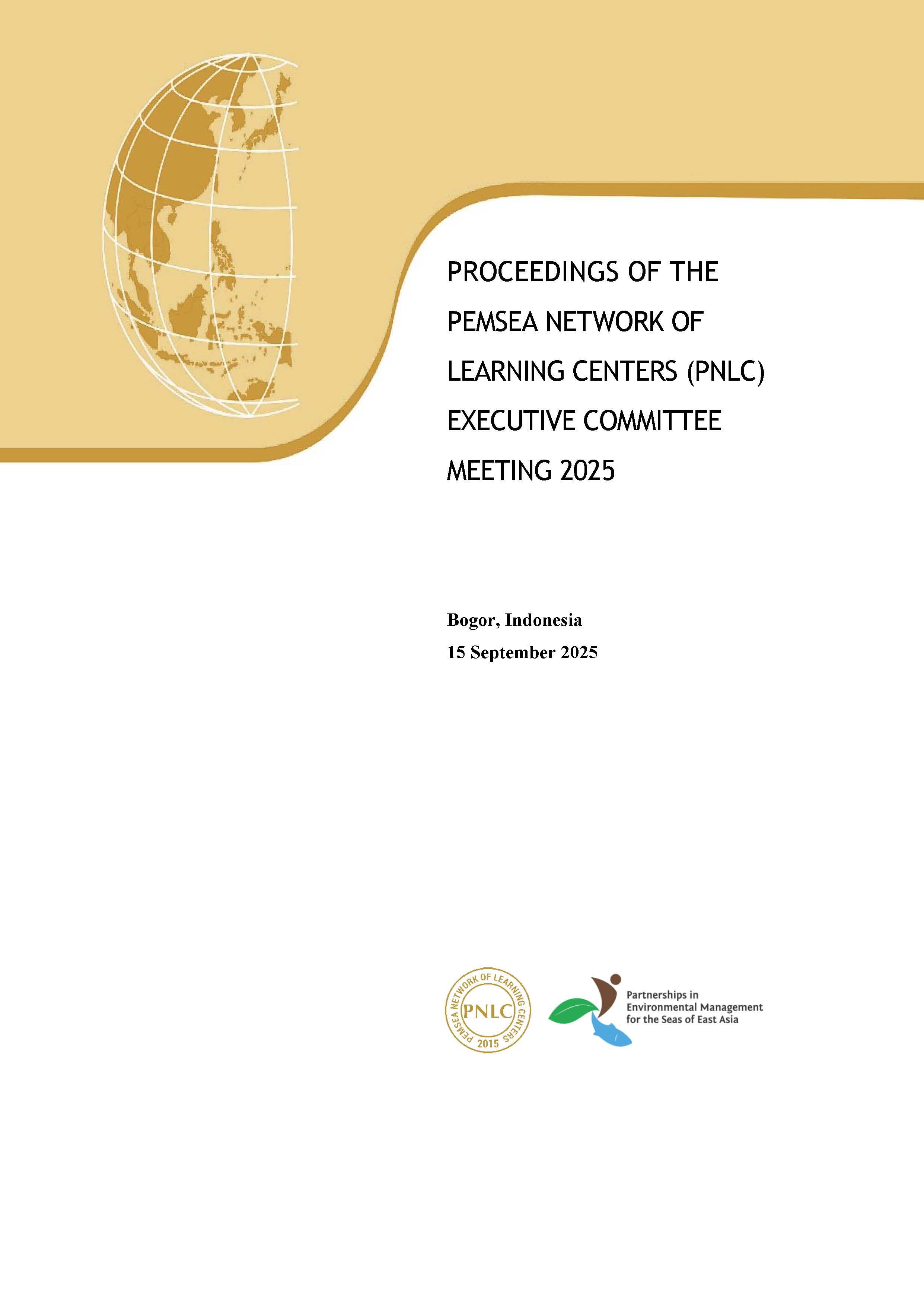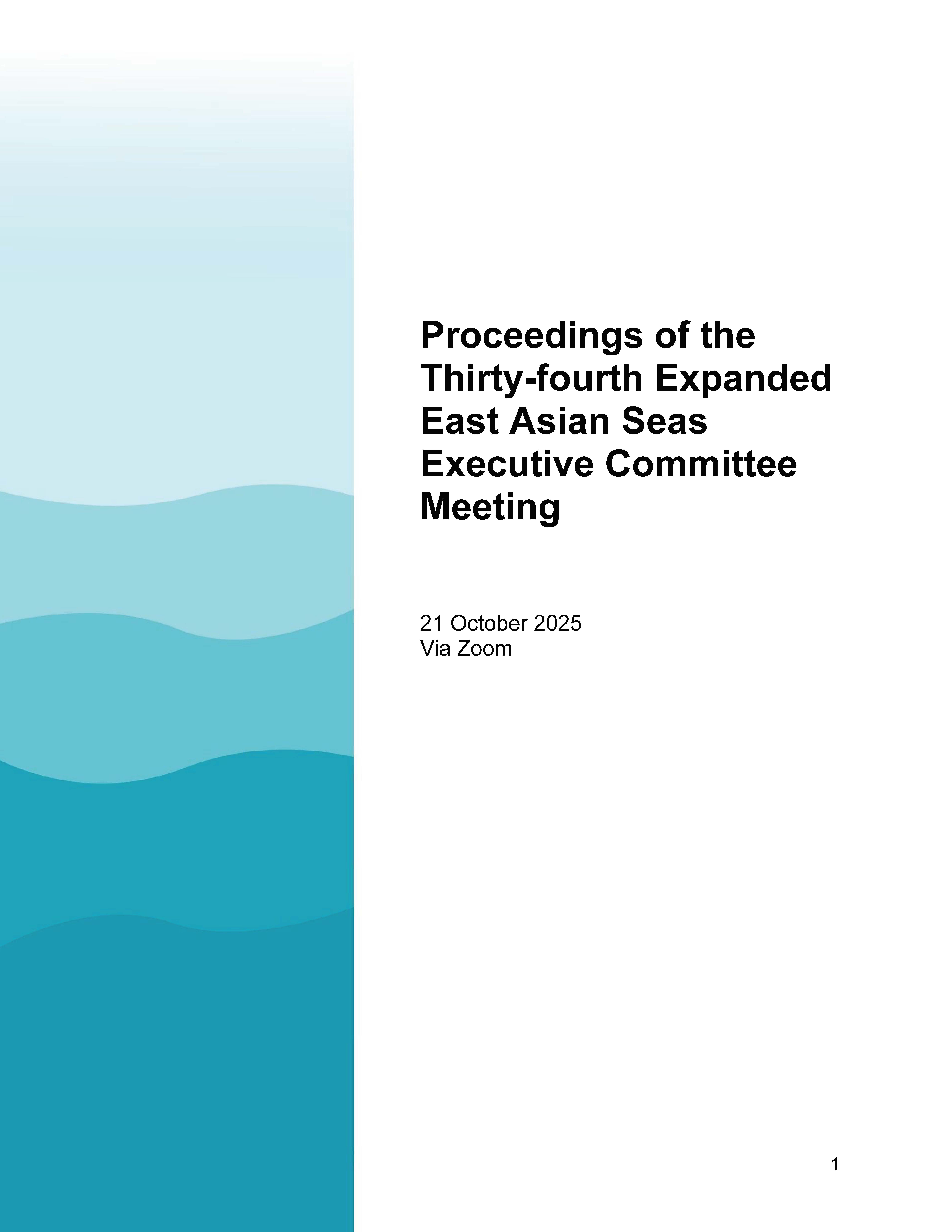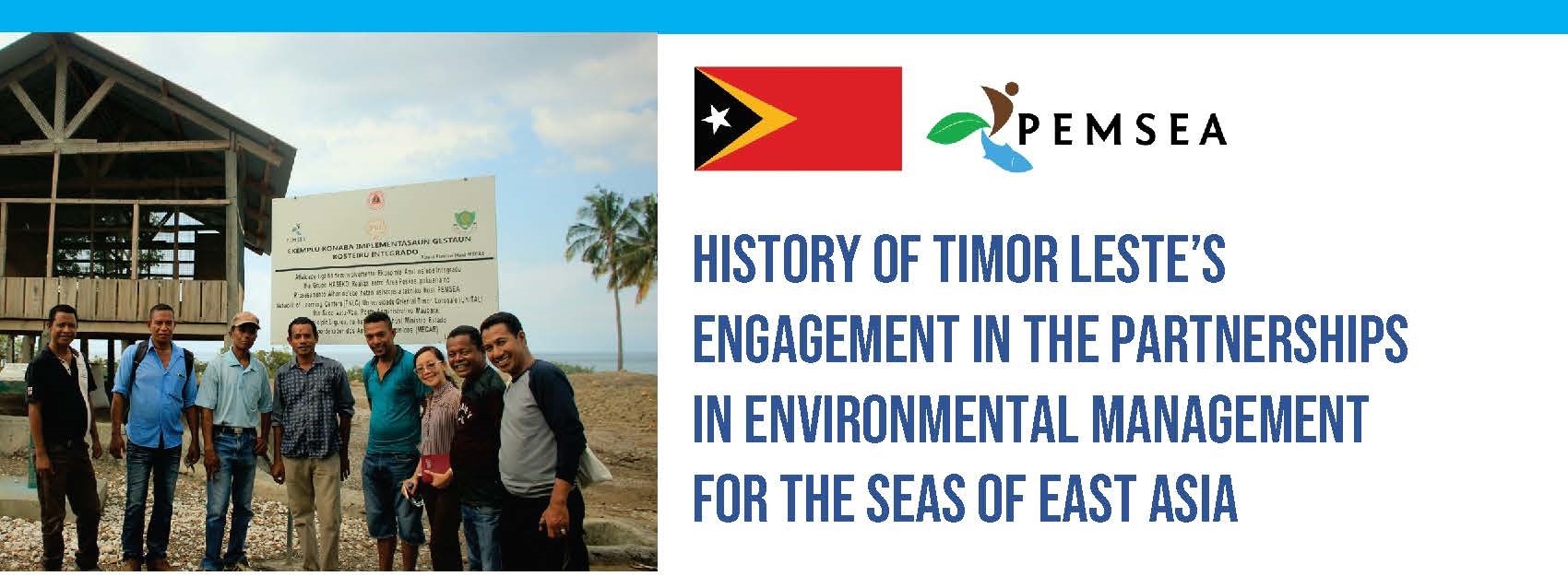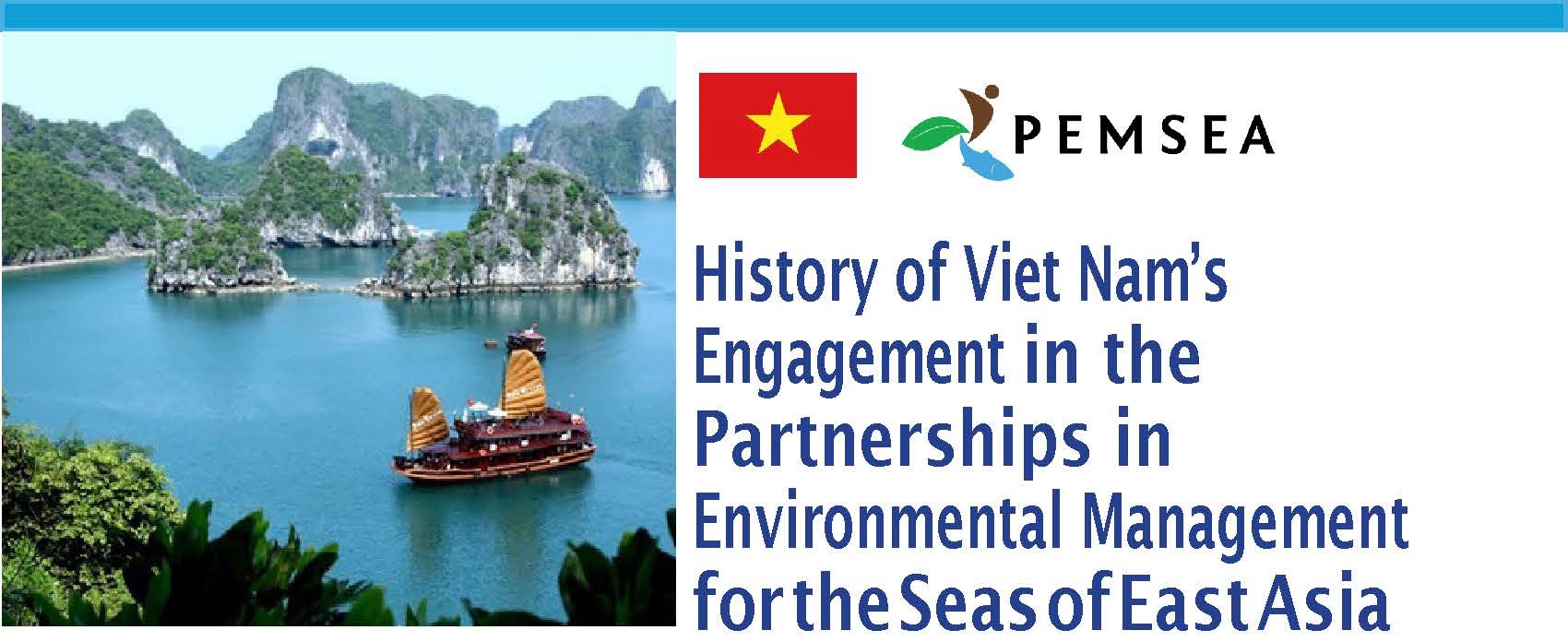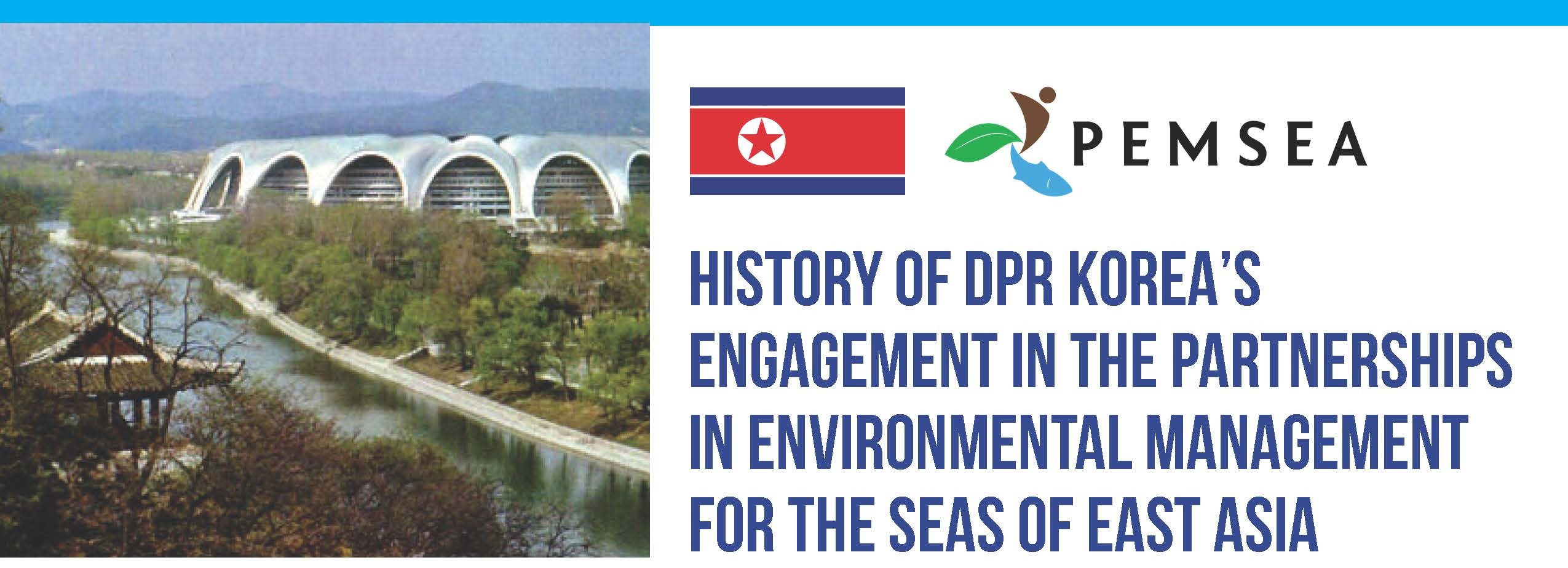Breadcrumb
Charter of the PEMSEA Network of Learning Centers (PNLC)
RELATED PUBLICATIONS
PEMSEA NETWORK OF LEARNING CENTERS (PNLC) 2025 Executive Committee Meeting Proceedings
The 2025 PNLC Executive Committee (PNLC EC) Meeting was organized by PNLC Secretariat on 15 September 2025 in Bogor, Indonesia. It was participated by Prof. Yonvitner of the Center for Coastal and Marine Resources Studies of the IPB University (CCMRS-IPB) and President of the PNLC, Dr. Fang Qinhua, Deputy Director of the Coastal and Ocean Management Institute of Xiamen University (COMI-XU) and Vice-President of the PNLC, and Ms. Aimee T. Gonzales, PEMSEA Resource Facility (PRF) Executive Director as members of the PNLC Executive Committee. Ms. Isdahartatie PNLC secretariat Coordinator/ CCMRS-IPB University, Ms. Nancy Bermas from PRF, Francesca Cortez (PRF Secretariat Assistant) and Lusita Meilana, PNLC Secretariat staff. The meeting was chaired by Prof. Yonvitner. Ms. Isdahartati served as the Secretariat of the meeting.
The following supporting documents are annexed to these proceedings:
- Annex 1: Meeting Agenda / Program
- Annex 2: Links to the meeting documents, presentation and photos
- Annex 3: List of participants
Proceedings of the Thirty-fourth Expanded East Asian Seas Executive Committee Meeting
The Expanded East Asian Seas (EAS) Executive Committee convened its 34th Executive Committee Meeting on 21 October 2025 online via Zoom. The meeting was attended by EAS Partnership Council Chair Attorney Jonas Leones; Intergovernmental Session Chair Mr. Le Dai Thang; Intergovernmental Session Co-Chair Dr. Xinwei Yu; Technical Session Chair Dr. Suk-Jae Kwon; and Technical Session Co-Chair Dr. Wakita Kazumi. The PEMSEA Resource Facility (PRF), led by Executive Director (ED) Ms. Aimee T. Gonzales, served as Secretariat to the meeting. PEMSEA Country Partners in attendance included national focal points and representatives from Cambodia, China, Indonesia, Japan, Lao PDR, the Philippines, the Republic of Korea, Singapore, Timor-Leste, and Viet Nam. Non-Country Partners present included representatives from the ASEAN Centre for Biodiversity, Ipieca GISEA, Oil Spill Response Limited, National Marine Hazard Mitigation Service, International Center for Environmental Management of Enclosed Coastal Seas (EMECS), PEMSEA Network of Local Governments, and Korea Institute of Ocean Science & Technology, among others. Online observers included staff from the PEMSEA Resource Facility and UNDP.
History of Timor Leste's engagement in PEMSEA
Since joining PEMSEA in 2006 through the signing of the Haikou Partnership Agreement, Timor-Leste has made remarkable progress in advancing sustainable coastal and ocean governance under the Sustainable Development Strategy for the Seas of East Asia (SDS-SEA). Over the years, the country has implemented Integrated Coastal Management (ICM) programs in key municipalities, developed national ocean and coastal policies, and strengthened inter-agency collaboration for marine protection and livelihood enhancement. Through its participation in regional initiatives such as ATSEA and the Marine Plastics ODA Project, Timor-Leste continues to demonstrate strong commitment to ecosystem-based management, blue economy development, and regional cooperation for healthy and resilient seas.
History of Viet Nam's engagement in PEMSEA
Since 1993, Viet Nam has been an active partner in advancing sustainable coastal and ocean governance in the East Asian Seas through PEMSEA. From pioneering Integrated Coastal Management (ICM) in Da Nang to establishing the Viet Nam Administration of Seas and Islands (VASI), the country has institutionalized ICM in national policy and legislation while fostering regional cooperation through leadership roles in PEMSEA bodies and ministerial forums. Viet Nam’s consistent participation in key initiatives and adoption of major regional declarations underscore its strong commitment to blue economy development, marine ecosystem protection, and the long-term implementation of the Sustainable Development Strategy for the Seas of East Asia (SDS-SEA).
History of DPR Korea's Engagement in PEMSEA
Since joining the regional GEF/UNDP/IMO Marine Pollution Prevention in the East Asian Seas (MPP-EAS) project, the DPR Korea has actively advanced Integrated Coastal Management (ICM) through the establishment of the Nampho demonstration site and the National ICM Training Center at Kim Il Sung University. The country has consistently participated in key regional forums, including the East Asian Seas Congresses and Ministerial Forums, adopting major regional declarations and frameworks such as the SDS-SEA and Manila Declaration. Its engagement reflects a sustained commitment to regional cooperation, marine pollution prevention, and sustainable coastal development under PEMSEA.
Breadcrumb
Breadcrumb
Breadcrumb
Launch of the Integrated River Basin Management (IRBM) Project
Monday, 15 December 2025
The GEF/UNDP/ASEAN Project entitled, “Reducing Pollution and Preserving Environmental Flows in the East Asian Seas through the Implementation of Integrated River Basin Management (IRBM) in the ASEAN Countries” was just successfully launched through a two-day meeting. The project is a collaborative effort to address the pressing issue of pollution and environmental degradation in the river basins of Southeast Asia.
Recent Articles
Breadcrumb
Recalibration and revitalization: Sorting out Cavite’s trash
Monday, 15 December 2025
This is an early release of reporting PEMSEA and our partners have produced from the Ecological Solid Waste Management in Cavite Province Project, a full project report is expected soon!

How data analytics took a solid waste management project, funded by Coca-Cola Foundation Philippines, Inc. and implemented by PEMSEA, to a whole new level
Recent Articles
Breadcrumb
ICM as a platform for oil spill contingency planning at the local level
Monday, 15 December 2025
Assessment of marine habitat. (Photo by PGOM-PAGO)
Oriental Mindoro, a coastal province in the Philippines, harbors critical nearshore habitats, such as coral reefs, mangroves and seagrass beds. These habitats serve not only as reservoirs of biodiversity, but provide a major source of livelihood for the coastal communities of the province. The sustainable health of these habitats is thus interwoven into the long-term well-being of the province.
Recent Articles
Breadcrumb
Breadcrumb
Breadcrumb
Korea supports Philippines, Timor-Leste to combat marine plastic pollution
Monday, 15 December 2025
Single-use plastic litters the marine waters of coastal areas in the Philippines, particularly those near commercial establishments and public markets. PEMSEA/Rizza Dejucos
Manila, Philippines – To aid the current plastic pollution situation, the Republic of Korea grants USD 9 million assistance to the Philippines and Timor-Leste to combat marine plastics pollution in their respective countries.
